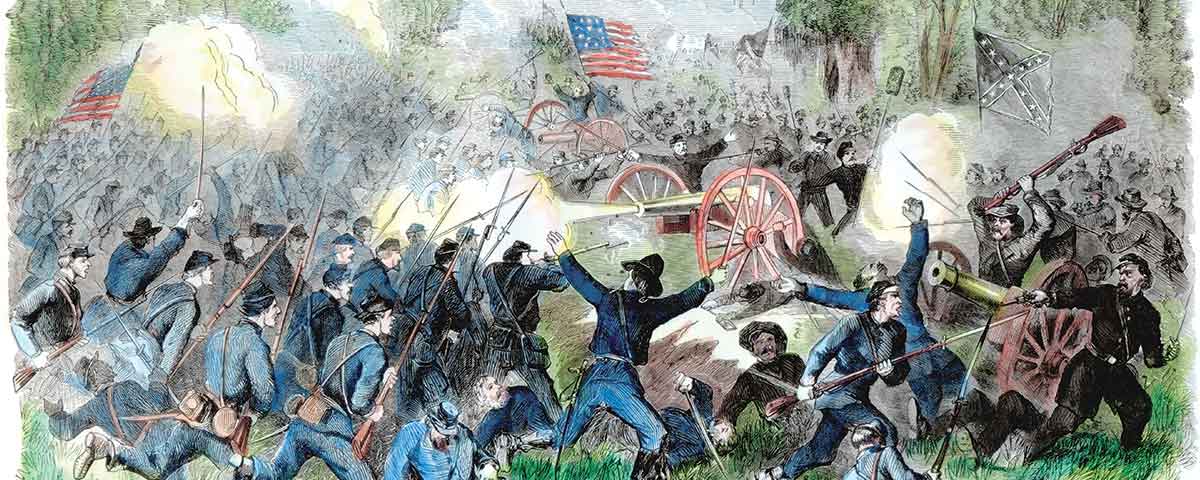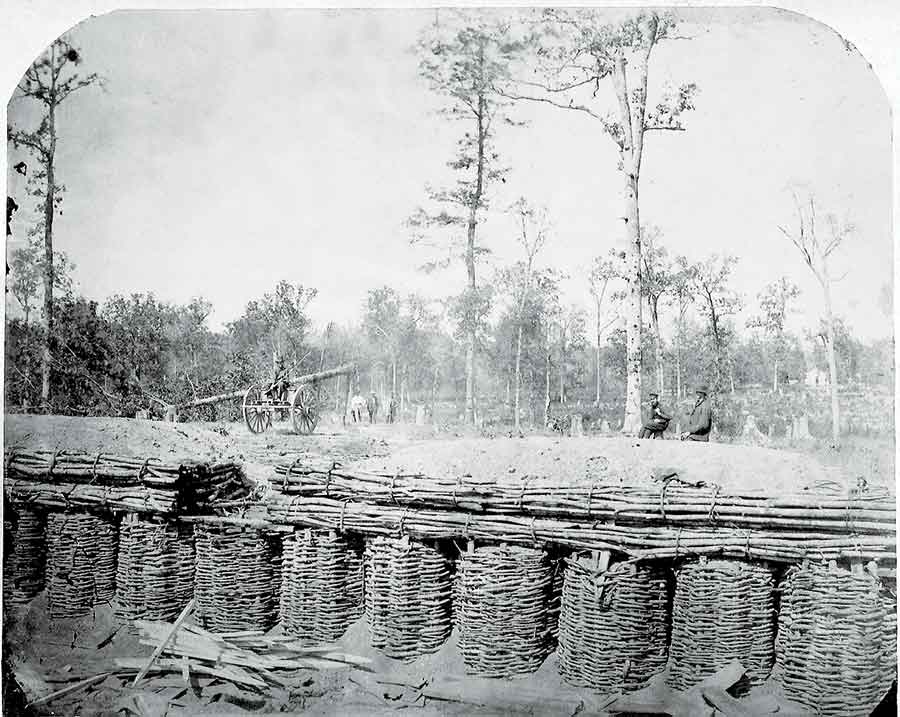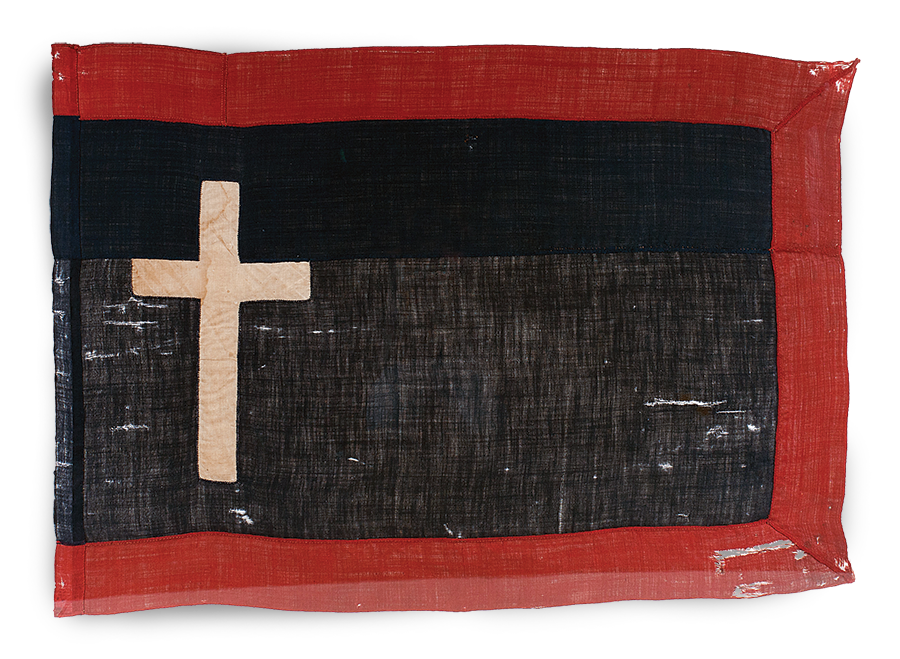A Missouri Confederate defies incredible injury at Corinth and Champion Hill
[dropcap]F[/dropcap]ew states experienced the conflict of the Civil War as uniquely as Missouri, a pro-slave state with disputed status. Claimed by both the Union and the Confederacy, the state sent over 100,000 men to fight for the Union and at least 30,000 of its sons to fight for the Confederacy, including Absalom “Robey” Dyson, a young teacher, farmer, and postmaster.
Dyson was educated and popular among his peers, including being nominated by his schoolmates at Steelville Academy to deliver the farewell address in 1851. “Like passengers on a great steamer,” the then 19-year old Dyson said, “our minds and hearts are so closely united that they never will be separated from that love within until our bodies are laid in the silent tomb.”
By 1853, Dyson had secured a teaching contract certifying him to be of good moral character and able to teach common school, including orthography, reading, writing, and arithmetic. He must also have felt a special kinship toward his students, for he saved many of their papers. On October 25, 1859, Dyson was married to Louisa Johnson. Their daughter, Cornelia, was born in November 1860.
After the outbreak of the Civil War, 28-year old Dyson joined the Missouri State Guard, which had been created by the pro-South governor Claiborne Jackson in May 1861 to drive Union troops from the state. General Sterling Price led members of the State Guard at the Battles of Wilson’s Creek, August 10, 1861, and Lexington in September 1861. After the Confederate Congress officially admitted Missouri as the 12th Confederate state on November 28, 1861, Price and Jackson began a campaign to enroll the guards into the regular Confederate service. Dyson, a private, and several of his brothers, enlisted in Company E of the 5th Missouri Infantry Regiment. Ordered east of the Mississippi River, the unit, under the command of Colonel James McCown, fought gallantly in the Battle of Iuka, September 19, 1862, and in the Battle of Corinth, October 3rd and 4th.
On the second day’s fighting at Corinth, the 5th Missouri and other regiments of the 1st Missouri Brigade charged through open field under a hail of shot and shell from Union guns at Battery Powell. The “very earth shook,” wrote one Missouri Rebel. It “looked like if hell had been let loose,” said another. Captain James W. Fair of Company E charged up the hill holding the regimental banner and was mortally wounded when he reached the top of the Union works. The Rebel Missourians pressed on, and their heavy hand-to-hand fighting temporarily secured a victory when they captured Battery Powell and many of the artillery pieces in and around it. The 5th’s colors were planted atop fortifications held moments before by the 6th Wisconsin Light Artillery, the 1st Missouri (USA) Light Artillery, and other Union cannoneers. Cheering Rebels poured into Corinth, but a Federal counterattack drove them back to Battery Powell and eventually to full retreat.
[quote style=”boxed” float=”left”]How nearly I came to losing my arm and head[/quote]
Dyson survived a shot to his right arm and, unbelievably, a shot to the head, above his right ear, during the engagement. He was captured by the Federals and brought to Iuka Springs Hospital to recover.
A collection of letters written by Dyson during the war is housed at the State Historical Society of Missouri, along with his students’ papers, his employment contracts, and other miscellaneous family documents. A selection of those letters is presented here. Note that Dyson habitually used a double dash, =, as a form of punctuation, and that idiosyncracy has been maintained in the text.
In a letter home to his wife, following the Battle of Corinth, Dyson describes the injuries he incurred in that engagement and his desire to see her and daughter Cornelia.
Iuka Springs Hospital
Nov 29, 1862
Dear Louisa
I am able to take up a pen and write you with my own hand which I esteem a great blessing and privilege when I think how nearly I came to losing my arm and head…The wounds…are entirely healed over but the bones in my (arm) are weak and I have to carry it in a sling yet = I think I will have a very good rise of it in few weeks more = You can only imagine how thankful I feel that I fell into the hands of the Surgeon I did; had it got into a many a one’s hands my arm would have been taken off and I would now be going around with a stub in place of an arm = I am glad to know that you still have plenty meat and bread but sorry to hear that you have not rec’d any money if I could get any that would be of any account to you but Confederate money is not worth anything in MO = You do not know how glad I would be to see you and hear Cornelia call the hogs, hear her talk and see that hair curl down on her neck = But when I will be blessed with that privilege I have no idea though I think I will see you and her sometime = There are not very many in hospital now, some gone to the country and others to command while some have gone to their long home = It grieves me to know that so many of our friends and relatives are gone, gone, gone, forever, sad the word but we have to encounter these things and should prepare for such trials and troubles…
In December 1862, Dyson was discharged from the hospital and exchanged. Still recovering from the wound to his right arm, he begrudgingly remained in camp as his comrades in the 5th Missouri, including his brother Elam and some of his former students, marched to a stinging defeat at Port Gibson, Miss., on May 1, 1863. Plagued by regret for missing the opportunity to fight with his unit, Dyson tells his wife in this June letter that he made every effort to ensure his presence on the line at every next opportunity, including the Battle of Champion Hill, May 16, where he was injured again.
Raymond Hinds County, Miss.
June 8, 1863
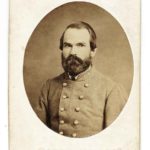
My Dearest Louisa: Doubtless ere this reaches you you will have heard of the several fights we have had of late in this state to wit: at Port Gibson, Raymond, Jackson and Champion Hill and also of my misfortune at the last named fight = I received a tolerably serious wound, the ball entering my right breast and passing directly through my right lung and coming out under my right shoulder blade = This sounds like it would be almost impossible for me to survive under the effects of such a wound and I actually thought I had received my death stroke but thanks be to a merciful Providence I am recovering as fast as I can and am almost well at this time been the 23rd day since I was shot = Oh! Louisa you do not know how glad I would be to see you again so I could tell you everything I would wish, but you must not think of seeing me soon for I know you would rather hear of me honorably falling to rise no more on the field of battle than to shamefully desert the cause and come to you = You will think strange when I tell you that I could have been out of this fight in which I was hurt, for I had not reported for duty = but I was left in camp the time of the Port Gibson affair in hearing of the whole concern and I never had such feelings in my life and I never want such again = Dear as life is to me I would sooner risk of my chances on the field of action with the last of the boys than left in that situation…
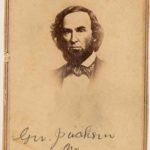
Dyson recovered from his wounds at a private residence in Raymond, Miss., for several months with widow and Confederate sympathizer Amanda Robertson and her teenage son, Frank, who both helped to nurse him and other wounded Confederate soldiers to better health. Meanwhile, his regiment, as part of Maj. Gen. John Bowen’s Division, remained under almost constant fire for weeks in Vicksburg, Miss. The entire 5th Missouri was captured en masse at the fall of Vicksburg, July 4, 1863, then paroled and exchanged in September of the same year. The regiment had been decimated in the campaign. Of the 432 soldiers of the 5th Missouri who reported for duty on May 1, 1863, at least 262 were killed or wounded by the conclusion of the Siege of Vicksburg. By the time Dyson returned to duty in September 1863, the debilitated regiment had been combined under Colonel McCown to form the 3rd and 5th Missouri Confederate Infantry Consolidated, still part of the 1st Missouri Brigade under the command of Francis Cockrell. The Rebel Missourians were well respected and highly disciplined. In a February 1864 letter to Mrs. Robertson, one of several he wrote her after returning to the front lines, Dyson said they had been subjected to multiple army reviews, including one by Maj. Gen. Dabney Maury and another by Maj. Gen. Patrick Cleburne, in which “the MO Brigade got the praise.”
In May 1864, the 5th Missouri moved about 275 miles in less than two weeks from Tuscaloosa, Ala., to Cassville, Ga., to join up with General Joseph Johnston’s Army of Tennessee to oppose Maj. Gen. Sherman’s Atlanta Campaign. Hard marching through mud and rain drained the troops. Weakened by chronic diarrhea and exhaustion, Dyson, in a June letter to Mrs. Robertson, describes the brutal conditions through which he tried to carry on.
Dallas County, Ala.
June 21, 1864
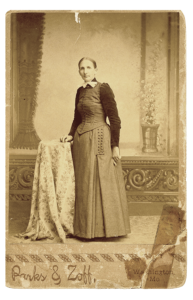
We have undergone many hardships privations and sore trials since we left Miss. = We were sent up into North Ala. into mountains to catch deserters = We went 50 miles and received orders to return without delay which we did retracing our steps to Tuscaloosa = Here we expected to get to rest a day or two but on the orders were to proceed direct to Montevallo a distance of 55 miles = Here we remained one day and night and took train and went to Blue Mountain 80 miles = At this place we stopped long enough to serve up four days rations which took us till late in the evening and then took up line of march for Boone, Ga, at which place we reach on the evening of 17th (62 miles) many almost broke down having marched 32 miles that day and part the time through rain and mud = Our cavalry and the Yanks had a right sharp skirmish before we got in = We expected to have to fight some that night tired as we were but soon after we stopped we were ordered to take trains to Kingston 17 miles which we did arriving at 1 o’clock next morning = Up early, troops passing in every direction and everything seemed to be fair for a fight that day = That evening we were drawn up in line of battle heavy skirmishing going on in our front = I thought we would be sure to have a bash but night came on and no more done, only we threw up some nice fortifications which we abandoned as soon as we got them finished = Well on Monday 23rd May we march from Altoona in direction of our left and again came in contact with the enemy on our right having some skirmishing on Tuesday evening where we lay in battle line all night = Early next morning we moved further to our right = Here I felt so badly I was sent to the cook wagons to help prepare rations where I remained several days = I still got worse = I was then sent to a Hospital in Covington, Ga. = Where arrived on morning of 30th Many greatly debilitated…next morning about 8 o’clock the surgeon made his appearance and what do you think my feelings were when he gave me no medicine prescribed no diet but in addition gave the ward of master orders to put me and two or three others into an old wash house to clean it out = I first told them I would not do it; but concluded I would ask the doctor if he had ordered it done = I ask him = He said he did tell the ward master to put me “at that work” = my reply was this, “Dr. whenever I am able to do such work is that I am able to go to the front” = He then looked me as sarcastically in the eye as he could and remarked “I think you are now able to go to the front”; and “more” says he “I think a man that has one spark of love for his fellow man one spark of patriotism glowing in his bosom would not hesitate for one moment to go in there and help clean out that house when it is so necessary to the comfort of these poor sick and wounded men” = I was hardly able to drag one foot after the other but I complied with the order = Next morning I applied and was discharged from the hospital = on my way to the command I became a great deal worse; and to make the matter still worse the very night I got to my Co., orders were given to fall back 11 miles = it rained all night and I was so weak that I could not sustain myself and fell down in the mud and water about 10 times = I was in an awful situation = I told one of the Lts. that I could not go any further…
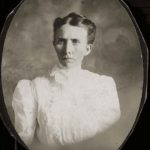
[quote style=”boxed” float=”left”]I was hardly able to drag one foot after the other[/quote]
Dyson was granted a 60-day furlough and moved to a private residence in Selma, Ala., to recover, where, in his last letter home from the war, he tells Louisa he will soon be strong enough to return, honorably, to the fighting. Though weak, ill, hardened by “this hateful war,” and maybe even discouraged about his prospects, he never wavers from his sense of duty, not only to the Confederate cause, but to his family, his brothers in arm, to God, and to the boys from the neighborhood he hopes to return to.
Friendly Fire
In an April 1864 letter to Amanda Robertson written from his camp near Landendale, Miss., Absalom Dyson described having a burning pine-cone battle with Brig. Gen. Mathew Ector’s Brigade, which included four Texas regiments. Dyson was not well enough to participate, but the fact the raucous sparring took place indicates morale was high in the Army of Tennessee on the eve of the spring campaign season.
“Our men are in fine health and spirits = we have had quite an interesting time for the last two or three nights in fighting sham fights with pine cones = Gen. Ectors (Texas) Brigade first gave the banter and of course…[we] accepted and to work they went = they would build fires set their cones on fire and then advance and throw them at each other until one or the other would have to give way = our men outnumber the Texans 2 to 1 therefore we have got the better of them every time, running them clear into their camps = I was a spectator and was so situated as to see the whole affair and I tell you it was a grand sight to see the balls of fire flying through the air thick and fast like so many red hot cannon shot…” –M.A.W.
Selma, Ala.
June 16, 1864
Dearly Beloved Louisa:
[quote style=”boxed” float=”left”]We may not meet on earth again[/quote]
I am now on my way to Central Alabama to get a place in a private house to recoup = I expect to be well and stout again soon = You may well imagine how glad I was to hear that Edwin was still alive and well = I was very uneasy for fear he was dead, as the boys who saw him last said he was very sick and hardly thought he would recover = I am glad that Lizzie heard from John = I heard from him and R. Armstrong 25th of May = they were both in good health then = William Patton said nothing about anyone else from our neighborhood, from the fact that he was not acquainted with them = Elam and Kie were well the seventh when I left them = Hiram died on third April of diarrhea and the effects of his wound = too like poor Frank had none of his near friends with him to console him in his dying hour = Thus one by one our comrades fall on our right and on our left and we should all be prepared for living so that when this frail body of ours shall moulder in the dust our spirits shall live and dwell in the presence of Jesus forever, where he will wipe away all tears, and there will be no more war or separation from those whom love most = Lou I often think of getting to that place but when I think how can God be just and save such an awful sinner; and then at other times I have a view of the plan of salvation…I often think about these things and the way I lived before I left home and since I came to Army = I know my course of life has not been as should; but I here resolved through the help of him who know all things, to live more in the discharge of duty than I have done heretofore = Cornelia, that sweet girl how I would like to see her, and see her strut around in her hoop like a St. Louis lady = tell her that Poppa says she must be a good little lady…you must be very careful Lou or she will be a spoiled child, but I am willing to leave her in your care to do as you think best = You have said something about my picture in several letters = it would give me great pleasure to send it but have not met with an opportunity to have it taken and send it away immediately = it is no use to have one taken and carry it with me for I lost one last summer that I intended sending to you…I should like very much to have yours and Cornelia’s but do not want you to trouble yourself unnecessarily for I know you have plenty to trouble you sides. = Tell the old folks I often think of them and wish to be remembered by them.
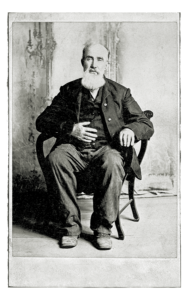
Lou we may not meet on earth again, but let that be as it may let us try to so live that whether we meet on earth anymore we will meet at God’s right hand.
From your affectionate husband
A.R. Dyson
Dyson died September 10, 1864, near Selma, Ala., from disease and infection. The 5th Missouri went on to fight at Allatoona and again suffered heavy losses at the Battle of Franklin in November 1864. Among the dead was Dyson’s younger brother, Elam. Absalom Robey Dyson was one of six brothers from Franklin County, Mo., who went to war for the Confederate cause. Only one of the Dyson brothers survived.
Wisconsin native Melissa A. Winn is a budding collector of Civil War photography, with an emphasis on Union General John A. Rawlins. She has written for multiple trade publications, including USAE News and Congressional Quarterly, and is the Director of Photography for Civil War Times.

